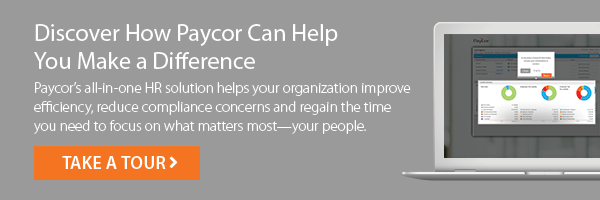If you work in HR, you probably hear a lot about “top talent.” And yes, we all want superstars on our teams. But even the most talented person is just one person. What about everyone else? We don’t take enough time to recognize the people who just show up every day and reliably get things done. These unsung heroes are the backbone of any successful business. Everyone on your team – from the C-Suite to entry-level workers – could learn a thing or two from their work ethic.

Punctuality
Being on time matters. Punctuality isn’t just about showing up; it’s about respecting your colleagues and customers. Over time, it builds trust by showing people that you always keep your commitments. It also drives business success. Tardiness and absenteeism cost U.S. businesses up to $3 billion a year (Business News Daily). To make life easier for everyone – punctual or tardy – HR should outline a timekeeping policy with clear expectations. You can encourage punctuality with thoughtful scheduling practices and regular shift reminders.

Focus
Multitasking isn’t a myth – but it is a serious problem. In this era of virtual work, nearly everyone tries to multitask. Most people believe it makes them more productive – but studies show the opposite is true. In fact, it takes office workers an average of 25 minutes to recover from a distraction (NeuroLeadership). People who can focus on one task a time might get more done over the course of a day.

Dedication
Consistent effort over time matters. Focus for one day and you’re on the right track. Keep that focus up for weeks or months, and you’re really onto something. People with strong work ethics have hard skills like great time management and soft skills like a sense of responsibility. By showing up every day, both physically and emotionally, and doing your best, you’re bound to see results.

Professionalism
Professionalism is more than just an outfit. People with this quality act with integrity and display a positive attitude. They communicate clearly and meet deadlines on time, showing respect for other people’s workflows. Remember, professionalism is a two-way street. Companies can encourage this behavior by fostering a supportive work environment.

Initiative
Self-starters save time and boost morale. Good workers follow instructions; great workers take ownership of their work. They understand your company’s mission, and they don’t wait for permission to work toward shared goals. Self-starters save time and resources because they don’t require constant oversight. It’s important for hiring managers to recognize these candidates right off the bat. That means distinguishing between creative thinkers and those who just won’t listen, or always think they know best.

Curiosity
The best employees are perpetual learners. Successful companies are always growing and changing – and so are their employees. Having a strong work ethic means working to improve, so you’re not left behind by your colleagues or your industry. No matter how talented a person is when you hire them, there’s always more to learn. Leaders can invest in these employees by providing on-the-job training. This not only upskills your team, but it also creates a culture of excellence in which coworkers encourage each other to grow. It’s best to offer several different types of training, so employees with different personality types get the support they need.

Productivity
Quality over quantity. Employees with a strong work ethic take their responsibilities seriously and strive to exceed expectations during their working hours. Their dedication and passion lead them to complete tasks efficiently and with high quality. They prioritize meaningful tasks over busy work, which ensures that their efforts contribute to the company’s goals. Unlike those with poor work ethics who may appear busy but achieve little, employees with strong work ethics work smarter, not harder. HR can support them by aligning company goals to optimize output and avoid burnout.
How Paycor Helps
Hiring managers should look beyond talent when they choose between candidates. Yes, talent matters, and you need employees with a certain baseline skill set and industry knowledge. But consider each new hire holistically. How will they fit into your team? How will they help your company reach its long-term goals? If a candidate has a great work ethic, it gets much easier to answer these questions. With the right people, the right support from HR, and the right talent management software, business success gets much easier.

Previous:
The 5 Main Roles of HR







